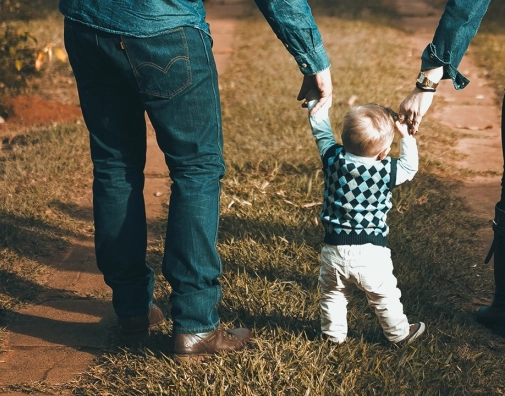
Parental Care, Genetics, and the Evolutionary Trade-Off

Parents have long grappled with a delicate balancing act: how much attention and protection should they give their children? Too little, and offspring might struggle to thrive; too much, and they risk raising adults unable to navigate life independently. Evolution, it turns out, faces a strikingly similar dilemma—and recent research sheds light on the genetic consequences of parental care.
As highlighted in a fascinating article by The Economist (May 24, 2023), biologists Rahia Mashoodh and Rebecca Kilner of the University of Cambridge explored why, once parental care evolves in a species, it almost never disappears. Their study, published in Proceedings of the Royal Society B, points to a hidden genetic cost: the accumulation of mutations in the genome of offspring that are sheltered and protected.
Mutations are random changes in an organism’s DNA. While some are highly detrimental and quickly eliminated by natural selection, many are only mildly harmful. Under harsh conditions, these minor mutations might prevent an individual from surviving or reproducing. However, in a nurturing environment—one where parents provide safety, food, and care—these offspring may survive and pass on their slightly compromised genomes. In other words, parental pampering allows mutations that might otherwise be lethal to persist.
Testing this theory required observing species over multiple generations. For long-lived species like mammals or birds, such studies would take decades, if not centuries. Enter the burying beetle—a small insect with an unusual habit of raising its young in small animal carcasses. These beetles provide intensive parental care: they carve and disinfect the nest, feed their larvae, and protect them from predators. Crucially, their short lifespan makes them ideal candidates for multigenerational studies.
Mashoodh and Kilner divided beetle populations into two groups. In one, the larvae were raised under normal parental care; in the other, the eggs hatched near a carcass with no parental supervision. This experiment was maintained for 20 generations. The next phase tested the genetic health of these lineages through inbreeding. Inbreeding magnifies harmful mutations and often leads to extinction, effectively revealing the “genetic load” accumulated over generations.
The results were striking. Beetles descended from doting parents succumbed after just two generations of inbreeding, whereas the lineage that grew up without parental care survived for four generations. In other words, offspring that were forced to face challenges and survive largely on their own carried healthier genomes. Parental care, while beneficial in the short term, had allowed mildly harmful mutations to accumulate—creating a genetic dependence on continued parental protection.
This phenomenon illustrates a profound principle: in evolution, parental care is effectively a one-way street. Once a species develops intensive caregiving behaviors, it becomes difficult to revert, because the offspring now rely on parental support to survive the genetic load accumulated over generations. Yet, it is not entirely a story of disadvantage. Among the many harmful mutations, some are beneficial. By surviving in a supportive environment, offspring have the opportunity to harness rare advantageous mutations that might not persist under harsher conditions. In essence, “helicopter parenting” in nature may simultaneously expose young to more risks—but also more evolutionary rewards.
For humans, these findings resonate on multiple levels. We are, after all, a highly parental species, with generations of caregivers shaping both our survival and our genetic health. While the study focuses on beetles, it raises intriguing questions about how parental environments—ranging from nutrition and education to emotional support—interact with the genome over generations. Could the patterns we see in human populations reflect, in part, the delicate balance between protection and exposure, support and independence?
At Adnà, we explore these intersections through the lens of modern genetics. Just as evolution cannot escape the consequences of parental care, our health today is shaped by layers of genetic and environmental influences. Understanding our DNA helps reveal the hidden “mutations” we carry—some with health implications, some potentially beneficial. And, importantly, it empowers us to make choices that optimize our well-being, from personalized nutrition to preventive healthcare strategies.
The Cambridge study also reminds us of the subtle trade-offs inherent in biology: short-term protection may carry long-term costs; challenges may expose vulnerabilities but also uncover potential. In practical terms, it encourages a thoughtful approach to our own care and the care we provide, whether for children, clients, or ourselves.
Evolution teaches that genes and environment are inseparable partners. By combining insights from our genetic blueprint with conscious lifestyle choices, we can navigate these trade-offs more effectively. Parental care may be a one-way evolutionary street, but human understanding allows us to make intentional decisions—mitigating risks, harnessing advantages, and ultimately shaping healthier generations.
References:
- Mashoodh, R., & Kilner, R. (2023). Parental care and the evolution of genetic load in burying beetles. Proceedings of the Royal Society B.
- The Economist. (2023, May 24). Parenting can be bad for the kids. Link
Talent & Personality Test

This innovative test offers you a deep understanding of how your genes can impact your natural predispositions, allowing you to better comprehend your innate strengths and personal characteristics.
Other Journal: News
VIEW MORE


